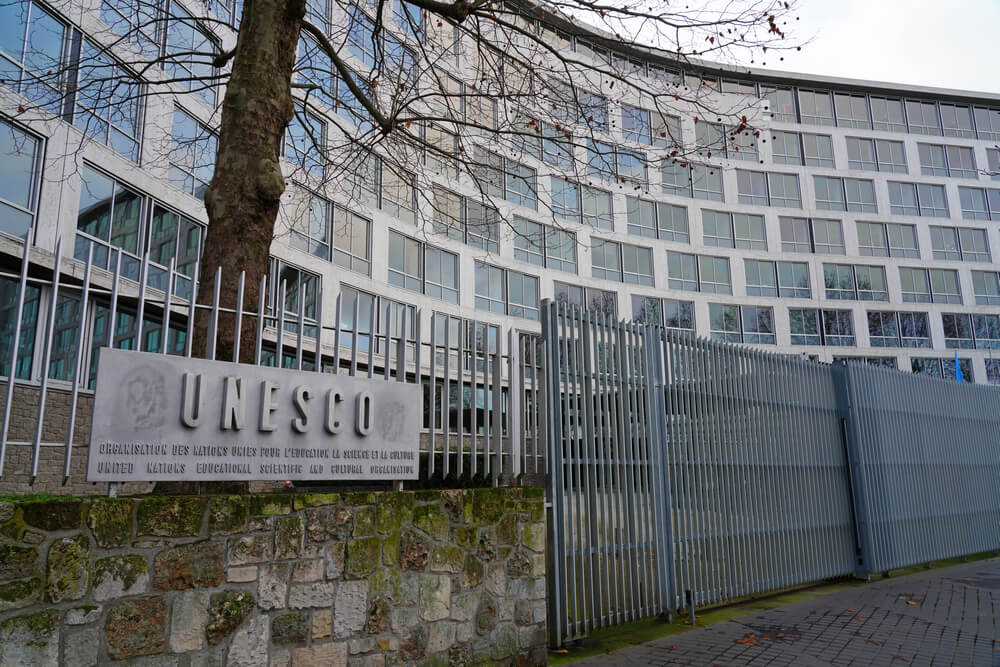This week, UNESCO completed the drafting of the first global document defining the ethical limits for the development and application of neurotechnology.
The "Recommendation on the Ethics of Neurotechnology" will be presented to member states for adoption at the UNESCO General Conference at the end of November.
This step marks the beginning of the establishment of international rules for a field that has so far developed almost entirely without oversight – technologies that allow direct access to and influence on the human brain.
UNESCO defines "neurotechnology" as a set of methods, devices, and systems that can measure, analyse, predict, or modulate the activity of the nervous system, whether for medical, research, or commercial purposes.
This includes everything, from clinical implants that assist people with motor impairments to commercial wearables that measure brain activity to assess attention, stress, or efficiency. In recent years, market growth in this area has been explosive, while legal and ethical norms have lagged far behind.
Creating a global framework for neurotechnology
The process of developing the document began in 2023, when the UNESCO General Conference tasked its Intergovernmental Bioethics Committee with creating a global framework for neurotechnology.
In 2024, regional and national consultations were held, and in May 2025, the expert group agreed on the final text of the recommendation.
The document precisely defines the limits of neurotechnology use and establishes that the protection of mental privacy, freedom of opinion, and personal autonomy must be regarded as basic human rights.
The document does not prohibit the development of the technology but sets clear rules. It requires states to introduce monitoring and risk assessment mechanisms to prevent devices that "read" or modulate brain activity from being used without the user's consent or for commercial purposes that threaten human dignity.
This initiative was created in response to growing concerns within the scientific and legal communities
The need to prevent the misuse of data on brain patterns and emotions is particularly emphasised, as these are considered the most sensitive forms of personal information.
This initiative was created in response to growing concerns within the scientific and legal communities. In recent years, several private companies have emerged offering products based on brain signals, from devices that monitor attention to systems that assess the emotional state of employees.
At the same time, military and intelligence agencies in several countries are funding research that combines neurotechnology and artificial intelligence.
UNESCO has determined that a global framework must be established before the boundary between scientific research and its use in surveillance disappears entirely.
The integration of neurotechnology and AI
Unlike previous ethical guidelines addressing genetics or biomedicine, this document has a much broader scope. It also covers the integration of neurotechnology with artificial intelligence systems and large databases.
The text states that combining these technologies creates the possibility of developing algorithms capable of predicting or altering individual behaviours, which necessitates international oversight.
Such technologies can penetrate the very sphere of consciousness, making them more sensitive than any previous technological innovation
Therefore, the recommendation urges states to establish legal and institutional frameworks to ensure transparency, accountability, and informed consent at all stages of research and implementation.
The core of the document is an attempt to define a new type of right – the right to mental integrity. This means that no technology may influence thought processes without explicit consent or collect data on brain activity that could reveal thoughts, intentions, or emotional states.
UNESCO warns that such technologies can penetrate the very sphere of consciousness, making them more sensitive than any previous technological innovation.
Protecting the human mind before it is too late
It is envisaged that, after adopting the document, member states will incorporate its principles into national laws and policies. They will be required to provide training for experts who will oversee implementation and to introduce a system of ethical risk assessment for all projects involving neurotechnology.
 UNESCO is attempting to establish order in a field where the boundaries between medicine, commercial application, and oversight are becoming increasingly blurred
UNESCO is attempting to establish order in a field where the boundaries between medicine, commercial application, and oversight are becoming increasingly blurred
They are also expected to develop a methodology for monitoring effects on societies and preventing abuses in education, employment, or criminal investigations.
In practical terms, this means that companies manufacturing brain-computer interface devices will need to change their existing operating models.
They will have to prove that users have provided informed consent, that their data is not used for other purposes, and that protection mechanisms are transparent.
With this, UNESCO effectively introduces a global standard similar to that set in the field of privacy by the GDPR (the European Union's General Data Protection Regulation), but applied to the human brain.
The adoption of this document could have significant consequences for international relations. Countries that quickly adapt to the new rules will have an edge in developing safe, reliable tech.
Those who ignore the recommendations may face restrictions on data sharing and licensing. Thus, the issue of neurotechnology becomes a matter of trust between states – who controls the data, who protects it, and in whose interests?
UNESCO is essentially attempting to establish order in a field where the boundaries between medicine, commercial application, and oversight are becoming increasingly blurred.
If the recommendation is adopted, it will be the first international framework to recognise that thought processes and brain data require equal, if not greater, protection than all other forms of privacy.
This is a moment when technology not only changes the world around us but also enters the very structure of the human mind – an attempt to protect that field before it is too late.